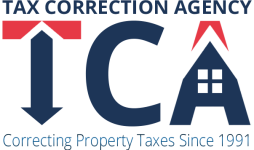About TCA

The Process of Grieving Your Property Tax Assessment in Nassau County



Frequently Asked Questions
No. The grievance process is almost always completed in advance of the tax year, and takes about two years.
Yes. You have one opportunity to file a grievance every year. Once a tax year’s deadline passes, there is no recourse to file for that year. Filing a grievance each year ensures that you will not miss an opportunity to lower your taxes. Waiting for a resolution, which may not come until after the next filing deadline, could cost you in taxes down the line.
About two years. If you sign up in September 2024, for example, for 2026/27, then savings (if any) do not accrue until October 2026, and our TCA bill for services does not come due until early 2027.
No one knows! Call the government, ask that question, and they will give you the same answer. It’s not knowable. What is certain is that if you can get your assessed value reduced from the tentative value the Assessor determines in advance, then you will pay less than you would otherwise be destined to pay.
Yes. However, homeowners who file for themselves may not get the reduction they deserve. Many are unprepared and do not have the time, experience, data, software, or knowledge to deal with ARC and, if necessary, small claims court. With over three decades of experience, we have the tools, experience, and knowledge needed to negotiate your case to the best possible result, in or out of court.
In general, no. There are 64 villages in Nassau County, each with its own way of doing things. That includes different deadlines, norms, processes, paperwork, offices, rolls, data formats, etc. Each village typically has too few households to be worth the close attention of a tax grievance professional. Every few years though, when we feel that the village rolls have gotten way out of line with reality, we select a few villages that we think are worth challenging. For now, though, we aren’t challenging any village assessments. Of course, we don’t bill for village savings either.
No. If you sign with more than one company, you may delay or even jeopardize your case. If duplicate representation is not resolved in a timely fashion, the result may cost you hundreds or even thousands in foregone property tax savings.
We are a small team of dedicated professionals who tend to each and every client individually. People also tend to call all at the same time — when the authorization period opens up in September, when the tentative assessed values are issued in January, when big tax-related news breaks, when ARC and SCAR decisions come in, when bills go out, etc. Please make sure to call Monday to Friday, 9 AM to 5 PM, always leave a message if you don’t get a hold of someone, and know that we will always call you back. You should also feel free to write us any time, at info@TaxCorrectionAgency.org.
